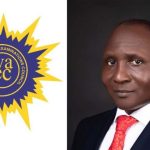
The Nigerian judicial system is facing a crisis of confidence as conflicting court judgments flood the legal landscape. Despite the principle that courts of coordinate jurisdiction should not overrule one another, recent events have highlighted numerous instances of contradictory and counter-orders from various courts. DEBORAH MUSA reports that this troubling trend is raising serious concerns about the integrity and reliability of the judiciary, the supposed last hope of the common man
Courts of coordinate jurisdiction, by law, are not supposed to overrule one another. If a party is aggrieved or dissatisfied with the decision of the court, the aggrieved has the constitutional right to appeal to a higher court. A court of coordinate jurisdiction cannot give directions over its equal. To this extent, a court of coordinate jurisdiction cannot overrule itself or its equivalent in any state or for any reason.
However, recent events from some courts in the country have shown that this law has been breached. Enormous contradictory and conflicting court judgments can be seen currently flooding the entire Nigerian courts. This has evoked concern among Nigerians, as more people began to question the judicial system and its integrity, given that the judiciary is supposed to be the last hope of the common man.
The Nigerian legal system is currently being threatened by the frequent contradictory and conflicting court judgments which not only cause problems among legal officers but also raise serious concern and suspicions for those outside the bench, thereby questioning the authenticity and justifiability of legal justice in the Nigerian courts.
The latest is the recent conflicting interim injunctions concerning the emirate tussle between Aminu Ado Bayero and Muhammadu Sanusi II, which transpired in Kano State, involving the federal and the state high courts.
The Kano State Governor, Abba Yusuf, reinstated Sanusi as the Emir of Kano, following the repeal of the Kano Emirate Council Law 2019, which split the Kano emirate into five and the enactment of the Kano State Emirate Council Law 2024.
Sanusi was dethroned in March 2020, under the administration of former governor, Abdullahi Ganduje, after the division of the emirate into five, Kano, Gaya, Karaye, Rano, and Bichi and made Ado-Bayero the Emir in place of Sanusi.
Following the enactment of the new law, the five emirates were dissolved and merged into a single Kano Emirate and Sanusi was restored as the sole Emir of Kano.
The development led to a series of conflicting and contradictory orders favouring different parties in the dispute.
Justice A.M. Liman of the Federal High Court in Kano State, on May 23, 2024, issued an ex parte order which, inter alia, suspended the implementation of the Kano State Emirate Council (Repeal) Law, 2024.
Four days after the ex parte order of Justice Liman was issued, Justice Amina Aliyu of the Kano State High Court also issued another ex parte order, dated May 27, 2024, which restrained Bayero from parading himself as the Emir of Kano.
Afterwards, Justice S.A Amobeda of the Federal High Court, Kano, also issued another ex parte, which affirmed the order earlier issued by Justice Liman and, on the other hand, conflicted with the order issued by Justice Aliyu.
Another conflicting court order saga was in the case of the immediate-past governor of Kogi State, Yahaya Bello.
Bello had approached a Kogi State high court where he filed a fundamental human rights suit against the Economic and Financial Crimes Commission before Justice Isa Jamil to protect himself from being arrested, detained or prosecuted.
Justice Jamil delivered a ruling on February 9, where he issued an interim order restraining the EFCC from arresting, detaining, persecuting or prosecuting the applicant (Bello) over the subject matter of the charge against him, pending the determination of the suit.
On April 17, Justice Jamil delivered a judgment on the substantive suit where he granted an order, “enforcing the fundamental rights of the applicant to liberty and freedom of movement and fair hearing, by restraining the respondent (EFCC) by themselves, their agents, servants or privies from continuing to harass, threaten to arrest or detain or in any manner whatsoever the applicant based on the criminal charges now pending before the Federal High Court.”
While the Kogi court was delivering judgment on the substantive suit, the EFCC approached Justice Emeka Nwite of a Federal High Court in Abuja for an arrest warrant on Bello, which was issued.
Another conflicting judicial order was in the scenario of the political crisis rocking Rivers State.
Two federal high courts in Abuja issued conflicting orders on the political crisis in the state.
Justice James Omotosho nullified the Rivers 2024 Appropriation Bill of N800.3bn that had been passed by a faction of the House of Assembly led by former Speaker, Edison Ehie, and signed into law by Governor Siminalayi Fubara.
Justice Omotosh0 also ordered Fubara to re-present the budget to the Mr Martin Amaewhule-led House while he held that the budget was invalid as it was not properly presented before the Rivers State House of Assembly, as required by the law.
The court confirmed Amaewhule as the recognised and authentic Speaker of the Rivers State Assembly, ordering Fubara to re-present the budget to the legislative house for approval.
The court faulted Fubara for meddling in the affairs of the state’s legislative organ, saying he acted like a tyrant when he demolished the Rivers State Assembly complex and also withheld funds standing to the credit of the legislative House.
Justice J. O Abdulmalik, a few hours after Justice Omotosho delivered his ruling, ordered substituted service of the application on all defendants, while he ordered all the parties in the matter to maintain status quo, pending the determination of an ex parte motion that six elders of the state filed to stop Fubara from re-presenting the 2024 budget before the Amaewhule-led faction of the Assembly.
Rotimi Jacobs (SAN), speaking with The PUNCH on the conflicting court judgments, specifically the Kano Emirate tussle, said the occurrence was an embarrassment perpetuated by senior lawyers. He added that such situations which should not be heard of kept recurring because of a lack of consequences.
He lamented why lawyers could let themselves be involved in something so shameful.
“It is not supposed to be like that. It is a real embarrassment to everybody. When everybody is aware that an order has been made, why should you go and make a contrary order? It is an embarrassment to the judiciary and it shouldn’t happen at all.
“Look at it now. It is now difficult to know which one to obey. Is it the one by the federal high court or the one by the state high court? We lawyers are to blame. We are the ones responsible for that kind of thing, not just the judges,” he said.
Speaking further, the SAN said, “And those involved are senior lawyers too. They went to file that sort of application and got the contrary order to counter the first order because there were no consequences.
“That is why this type of thing has continued to persist in our country. They only go after the judges, the lawyers who are filing it, nothing is being done to them.”
Chief Mike Ahamba (SAN) said a judge who issued another order while there was a subsisting one from a court of coordinate jurisdiction should be immediately retired.
He said, “The NJC should retire the judge who makes the second order with immediate effect.
“After the first court issues an order, every other court on that level loses jurisdiction, since it came from a court of coordinate jurisdiction. A judge shouldn’t interfere in such matters unless it can be said that he or she didn’t hear about the other case.”
Human rights lawyer, Chief Malcolm Omirhobho, noted that such an occurrence was an abuse of the court process.
He explained that such situations should not be happening but it had become a regular occurrence because the lawyers who involved themselves in it did not get punished.
On its part, the Nigerian Bar Association strongly condemned the conflicting court judgements.
The association, stated that the conflicting judgments had brought disgrace to the legal profession i
He called on the heads of various courts involved, to immediately look into the matter and petition the judges before NJC.













